Tunisia
Tunisian President Kais Saied announced on Saturday night the appointment "as soon as possible" of a new government and mentioned a future reform of the Constitution, during a walkabout in Tunis.
A new government will be "formed as soon as possible" after "selecting the most honest personalities", said Mr. Saied to Wataniya and Sky News Arabia television, after strolling, under guard, on Bourguiba Avenue, which crosses the heart of the capital.
On 25 July, Mr. Saied dismissed the Prime Minister, suspended the activities of parliament and also took over the judiciary, for a month renewable before extending these measures on 24 August, "until further notice.
On Saturday evening, he did not give a precise date for the formation of the government, adding: "we are continuing the search for personalities who will assume this responsibility".
President Saied also referred to the 2014 Constitution, saying that he "respects it but we can introduce amendments to the text". According to him, "the Tunisian people rejected the Constitution" and "Constitutions are not eternal".
It is therefore necessary, in his eyes, "to amend while respecting the Constitution", while keeping in mind that "sovereignty belongs to the people".
In recent days, many media outlets have speculated that a provisional government will soon be announced, followed by a revision of the Constitution, which will then be submitted to universal suffrage via a referendum, before new legislative elections.
In the images posted on the Facebook page of the presidency, the head of state can be seen walking down Bourguiba Avenue, cheered by the crowd who sing the national anthem, before stopping in front of the microphones of television stations.
- UGTT and Ennahdha -
A legal theorist and teacher, Kais Saied has presented himself since his surprise election by a large majority in late 2019 as the ultimate interpreter of the Constitution.
He relied on its Article 80, which envisages exceptional measures in case of "imminent danger" to national security, to justify the decisions taken over a month and a half ago.
Many Tunisians welcomed them with enthusiasm because, exasperated by their political class, they expect strong action against corruption and impunity in a country in serious social and economic difficulties.
But opponents, political parties, magistrates and lawyers said they feared an "authoritarian drift".
Several major political groups expressed their opposition to the president's plans on Saturday.
The powerful trade union centre UGTT called for early legislative elections so that a new parliament can be seized of a reform of the Constitution.
In a statement, the Islamist-inspired Ennahdha party, which had the most seats in the parliament frozen by Mr. Saied, expressed "its categorical rejection" of "any suspension of the application of the Constitution" or "change in the political system, possibly via a referendum.
As an illustration of the persistent social unrest, a 35-year-old man killed himself on Saturday in the centre of Tunis by setting himself on fire, a week after an identical suicide by a 26-year-old who was injured during the 2011 Tunisian revolution.
According to Tunisian media, the man was from Djerba and had come to Tunis to find a solution to serious economic problems.
His actions are reminiscent of those of street vendor Mohamed Bouazizi, who was the cause of massive protests and the fall of President Zine el Abidine Ben Ali's regime in 2011.




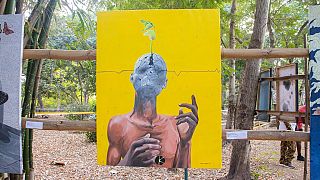


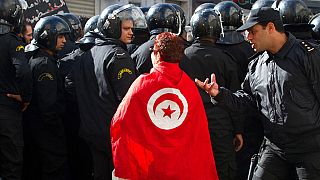
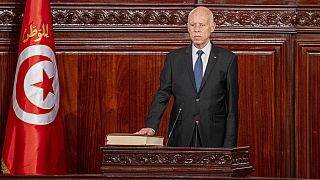

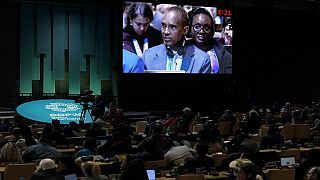
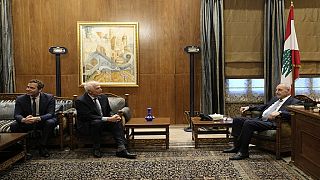
01:11
DRC: UDPS pushes for complete overhaul of 2006 constitution
00:51
Interior minister says Gabon has approved a new constitution
01:00
Tunisia: French student detained for weeks, flies back home
01:17
DRC: President announces creation of commission to oversee Constitutional revision
11:07
The economy, the challenge of Kaïs Saïed's second term [Business Africa]
00:57
Kais Saied's landslide reelection strengthens his grip on power